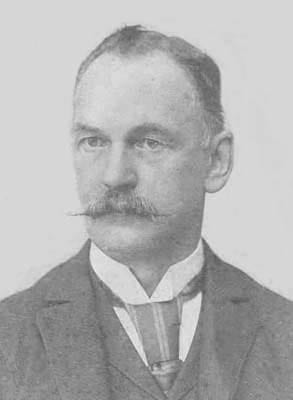b. 1837, Grodkowice, near Kraków – d. 1921, Kraków
Biography

Described by period writers and fellow composers, Zygmunt Stojowski and Jarosław Zieliński, as the most influential Polish composer of the fin-de-siècle, Żeleński was the teacher of a generation of composers and author of numerous operas. After musical studies in Kraków (piano with Jan Germasz and harmony with Franciszek Mirecki), Żeleński continued his education in Prague (from 1859, piano with Alexander Dreyschock and composition with Joseph Krejcí) and in Paris (1866-1870). A composer of wide horizons and extensive education, Żeleński received a Ph.D. in philosophy in 1862 from the University of Prague. In 1871 he was active in Warsaw and since 1881 in Kraków a a professor of music theory, composition, conductor and organizer of musical events.
Żeleński is best remembered for his operas, drawing from Polish literature (Mickiewicz, Malczewski, Słowacki) and a variety of musical influences ranging from the French grand opera to the continuous narrative of the post-Wagnerian music drama (as represented by Paderewski’s Manru, formal features resembled in Stara baśń, also based on a Kraszewski novel, composed five years after Paderewski’s work). His operas often include stylization of Polish folklore and national dance rhythms, especially mazurkas and krakoviaks. The lyricism of his melodies, coupled with conservative harmonic language, destined him to become one of the important composers of songs popular in Polish salons of the period. For the texts of these songs he often used the best Polish romantic poetry (Mickiewicz, Krasiński and others).

List of Works
Operas
Konrad Wallenrod to a libretto by Z. Sarnecki and W. Noskowski, after A. Mickiewicz), 1885
Goplana, to a libretto by L. German, based on a drama by Juliusz Słowacki), 1896
Janek [Johnny], 1900,
Stara baśń [Old Fable] to a libretto by singer A. Bandrowski-Sas, after Józef Ignacy Kraszewski’s novel of the same title; 1907
Vocal-Instrumental Works
Latin Mass for male chorus and organ
Mass for female chorus
Psalm 46: In Exitu Israel for mixed chorus
Veni Creator for male chorus
Te Deum for chorus
Cantata for the Victory of Jan Sobieski at Vienna [Kantata dla uczczenia zwyciestwa Jana Sobieskiego pod Wiedniem] for male chorus and orchestra, 1883
Gloria Tibi Alma Mater, cantata for the 500 anniversary of Jagiellonian University, 1900
Orchestral Works
Symfonie lesne [Spring Symphony], op. 41
W Tatrach [In the Tatra Mountains], overture op.27, 1872
Romance for cello and orchestra, op.40
Suite of Polish Dances, op.47
Other Works
chamber music including 5 string quartets, Piano Quartet, op.61, piano trios, sonatas for violin and piano, various miniatures for violin and piano, cello and piano
music for piano solo including 2 sonatas, Grand scherzo de concert, op.35; Thčme varié, op.62
over 100 songs to texts by Zaleski, Mickiewicz, Dzwonkowski, Żmichowska, Konopnicka, Odyniec, Malczewski, Kraszewski, Syrokomla, and
other Polish poets
Writings
Nauka harmonii i pierwszych zasad kompozycji [The theory of harmony and first principles of composition] (Warsaw, 1877).
Nauka elementarna zasad muzyki [The theory and elementary principles of music] (n.p., 1897).
Manuscripts at USC
None
Page updated on